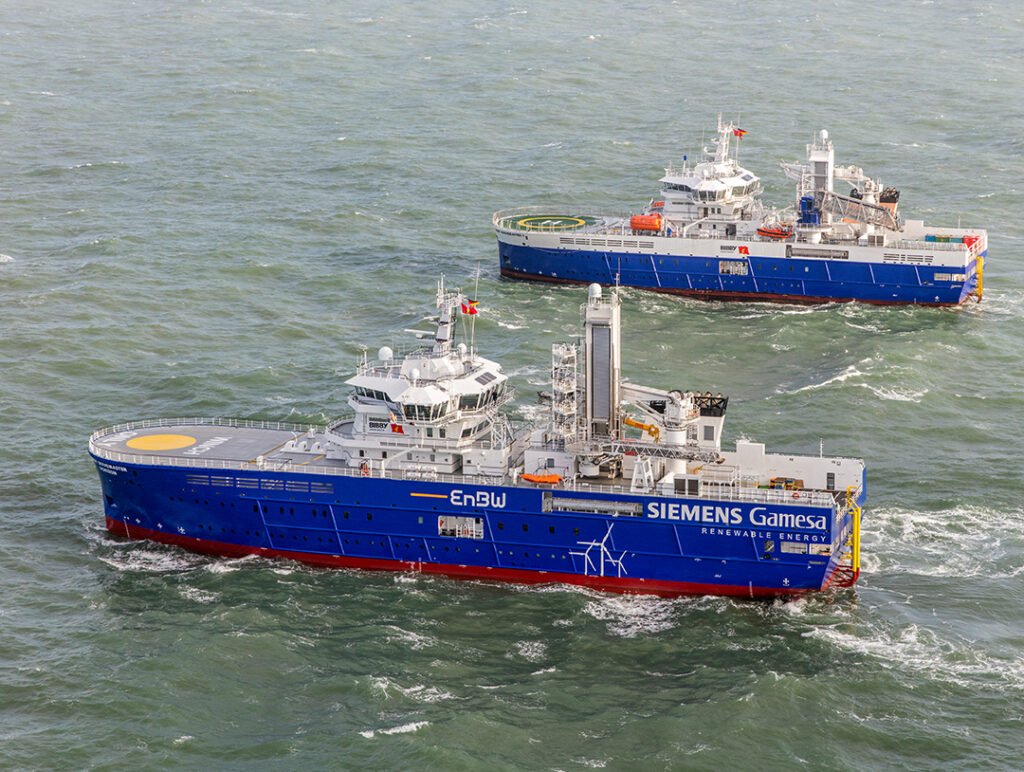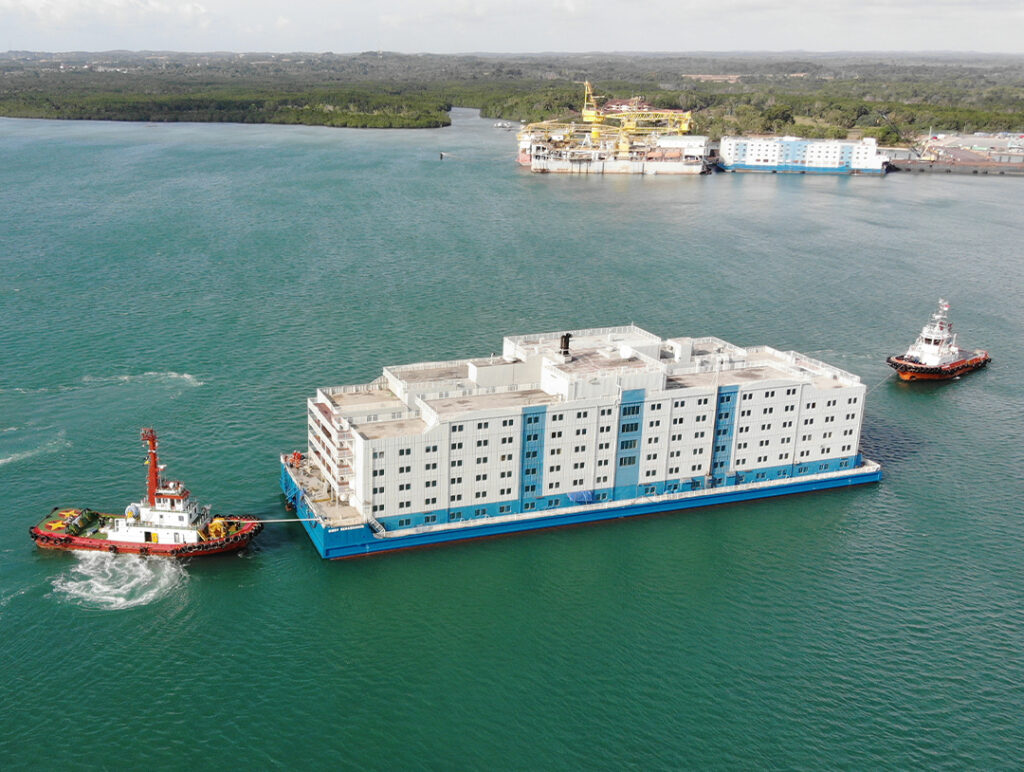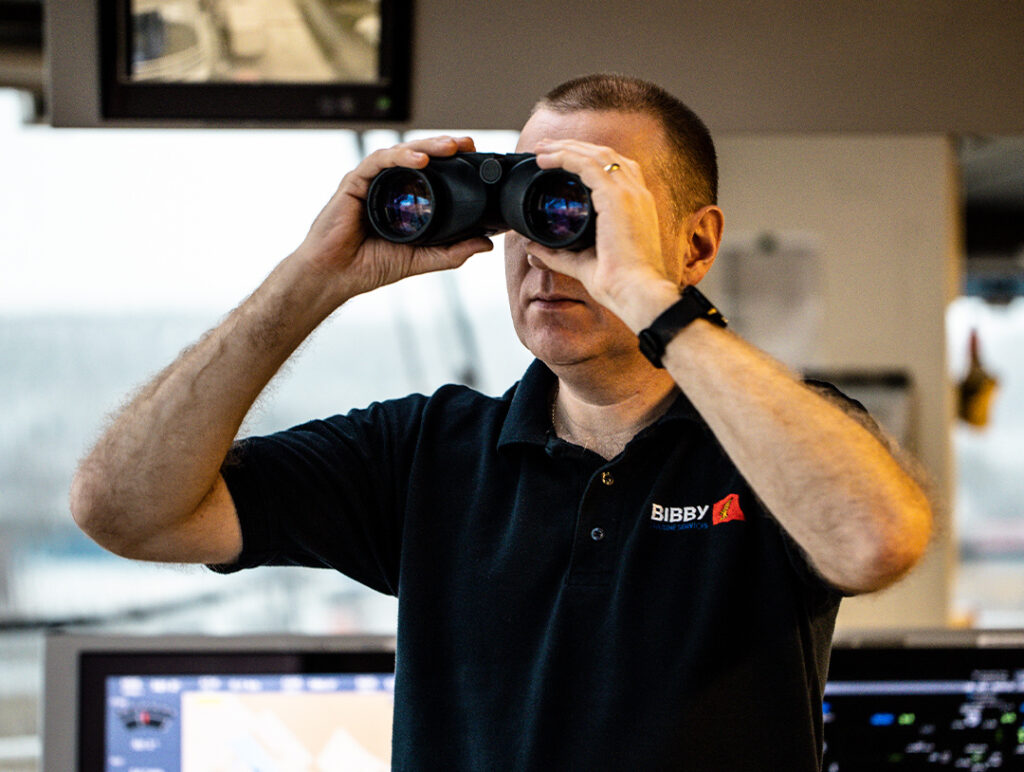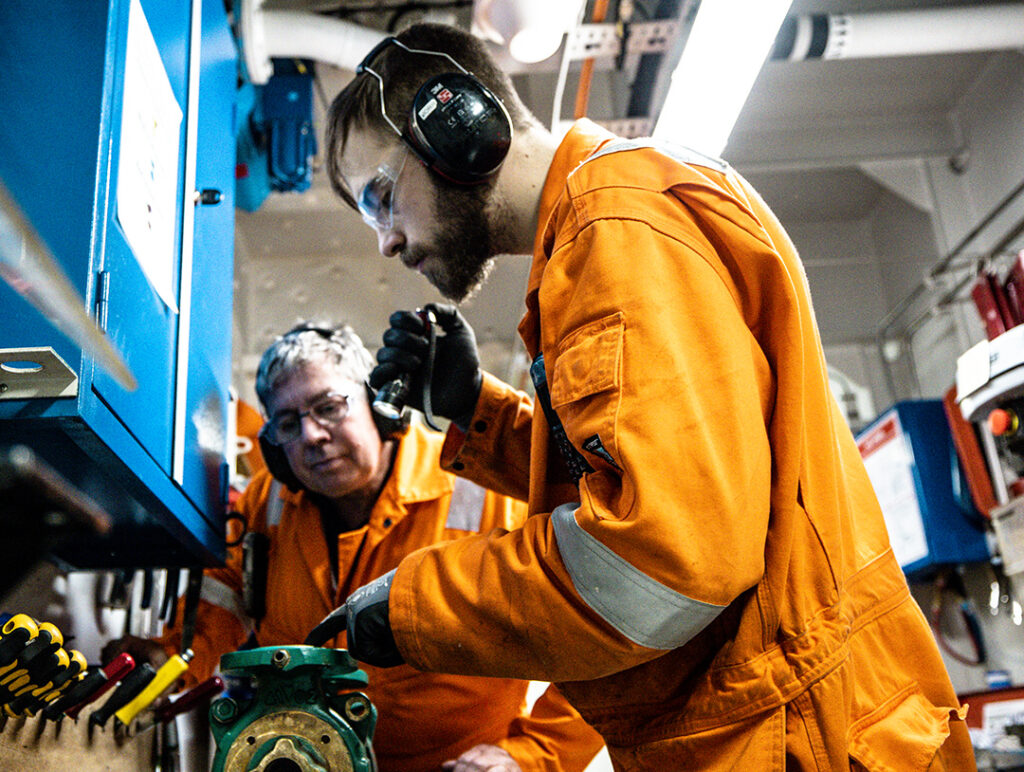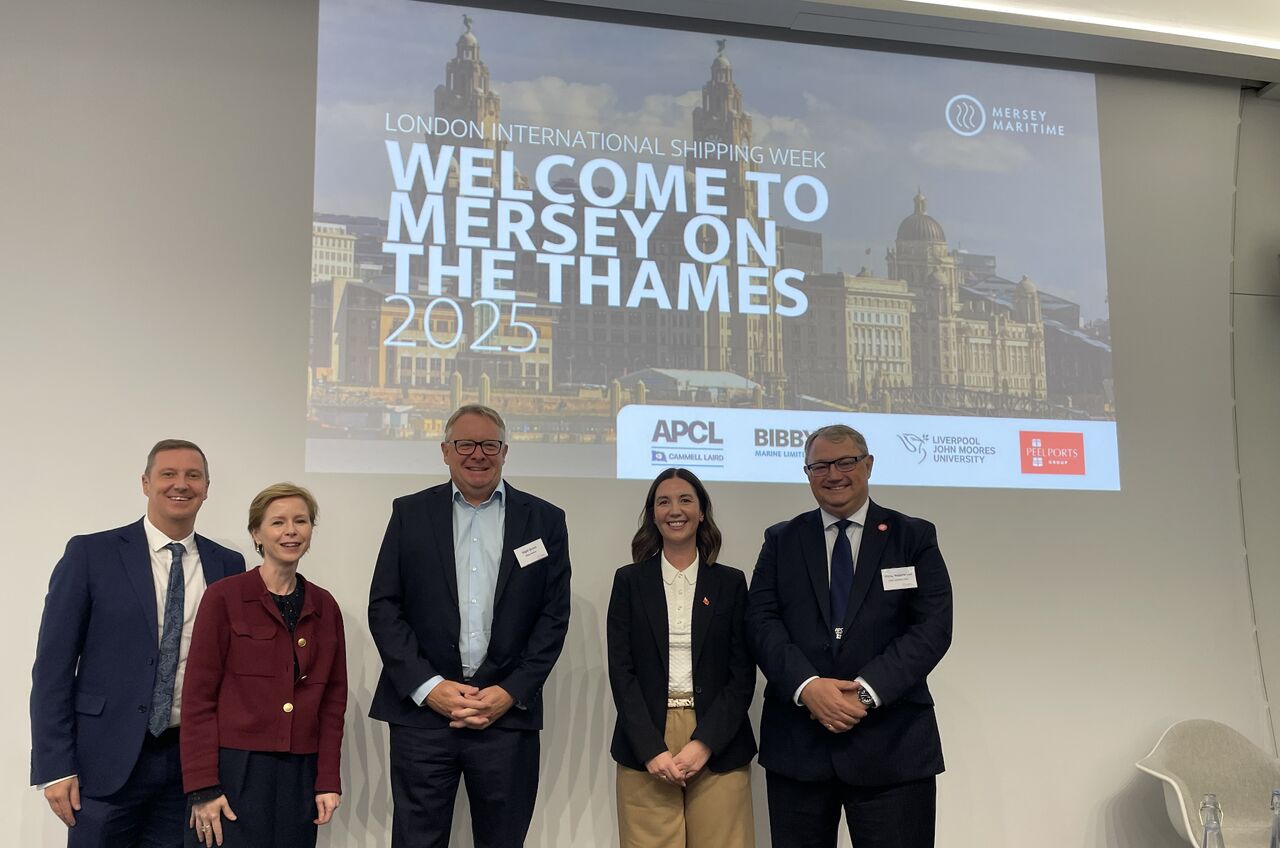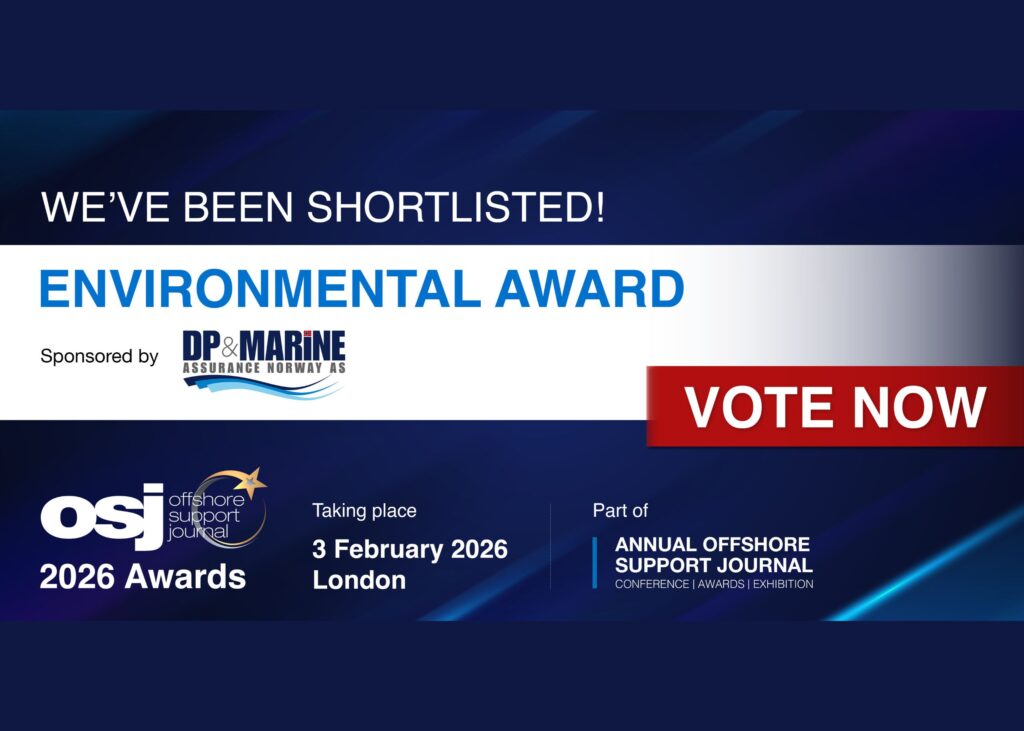This week, as part of London International Shipping Week 2025, Bibby Marine CEO, Nigel Quinn, joined fellow industry leaders at the Mersey on the Thames event – a biennial showcase of the Liverpool City Region’s maritime strength and ambitions for the future.
Held at the Royal Academy of Engineering, the event brought together port operators, shipbuilders, academia and government representatives to explore how coastal communities spanning the Liverpool City Region and wider Northwest can lead the charge in decarbonising the maritime sector and unlocking clean growth.
The panel discussion centred around themes including decarbonisation as an ongoing and evolving imperative; collaboration within and across regions; infrastructure and energy readiness; innovation, investment and risk; and skills, careers and the future maritime workforce.
Nigel set the tone early, stressing that the scale-up of offshore wind in the Irish Sea presents an immediate opportunity for Liverpool and the North West to become a powerhouse in sustainable maritime operations. “It would be remiss of the region not to fill its boots,” he said. “We’ve got to be passionate about building up local jobs and Gross Value Add, and positioning Liverpool at the forefront of the energy transition.”
Representing a business with over a decade of experience in offshore wind and deep regional roots, Nigel spoke candidly about Bibby Marine’s journey towards decarbonisation – including the development of the world’s first zero-emission Commissioning Service Operation Vessel (eCSOV). He pointed to the real-world energy implications of electrifying offshore operations, recalling a conversation with representatives from the Isle of Man, who highlighted that the vessel’s charging demand could outstrip local capacity. “It was a striking example of how energy and maritime strategies must evolve in parallel,” he noted. “We can build the vessels, but without matching investment in clean infrastructure, we won’t unlock their full potential.”
This point echoed wider concerns across the panel around infrastructure readiness and the need for more strategic energy planning. Phillip Hall, Port Director, Mersey at Peel Ports Group, underlined the importance of long-term infrastructure thinking and investment, highlighting how port-side electrification and connectivity will be essential enablers of cleaner vessel operations and supply chain resilience. Nigel agreed, noting that “getting from a pilot project to full deployment requires more than technology – it needs vision, funding and political will.”
Dr Aileen Jones, Pro-Vice-Chancellor for External Engagement & Partnerships at Liverpool John Moores University, brought in the critical angle of skills and workforce development, highlighting the region’s growing innovation ecosystem and its potential to generate future-ready maritime careers. The panel was aligned on this sentiment, collectively calling for greater efforts to engage young people in technical and digital maritime roles, from AI-enhanced vessel management to clean energy systems.
The discussion also explored the importance of collaborative culture, with Phil Waterhouse, Group Corporate Affairs Director at Cammell Laird, praising the region’s track record in pulling together diverse stakeholders to deliver high-value projects. Welcoming this sentiment, Nigel also offered a pragmatic caution: “You need the right people in the room with the power and drive to actually enable change. Partnership for the sake of optics doesn’t move the needle.”
Speaking on the gap between climate ambition and the reality of project funding, particularly for first-of-a-kind vessels and fuels, Nigel explained how Bibby Marine benefits from its shareholders structure, receiving support both for innovation and long-term value creation, while acknowledging that wider access to capital remains a key constraint for many in the industry.
Nigel noted how the tone of the decarbonisation conversation has changed in recent months. “There’s been a real shift in sentiment, with less focus on urgency and more scrutiny around commercial viability,” he commented. However, he was clear that this shift shouldn’t deter progress. “It’s still the right thing to do,” he said. “Good companies, with solid values and long-term thinking, will stay the course – because decarbonisation isn’t just a compliance issue, it’s a commitment to doing business the right way.”
Looking ahead, panellists painted a picture of a maritime sector in transition, where hybrid and electric vessels become standard, support infrastructure is embedded into port operations and seafaring evolves into a digitally enabled, low-carbon profession. “Our goal,” Nigel concluded, “is not just to build clean ships, but to be part of a region that’s driving maritime innovation for the next 25 years and beyond.”
As LISW25 continues, the Mersey on the Thames event served as a timely reminder that while the maritime transition must be global, its foundations are built locally – in the shipyards, ports and communities already shaping the future of clean offshore operations.
To learn more about Bibby Marine’s long-term vision for clean, collaborative offshore operations – and how its zero-emission eCSOV forms part of a wider commitment to innovation and decarbonisation, visit here.
